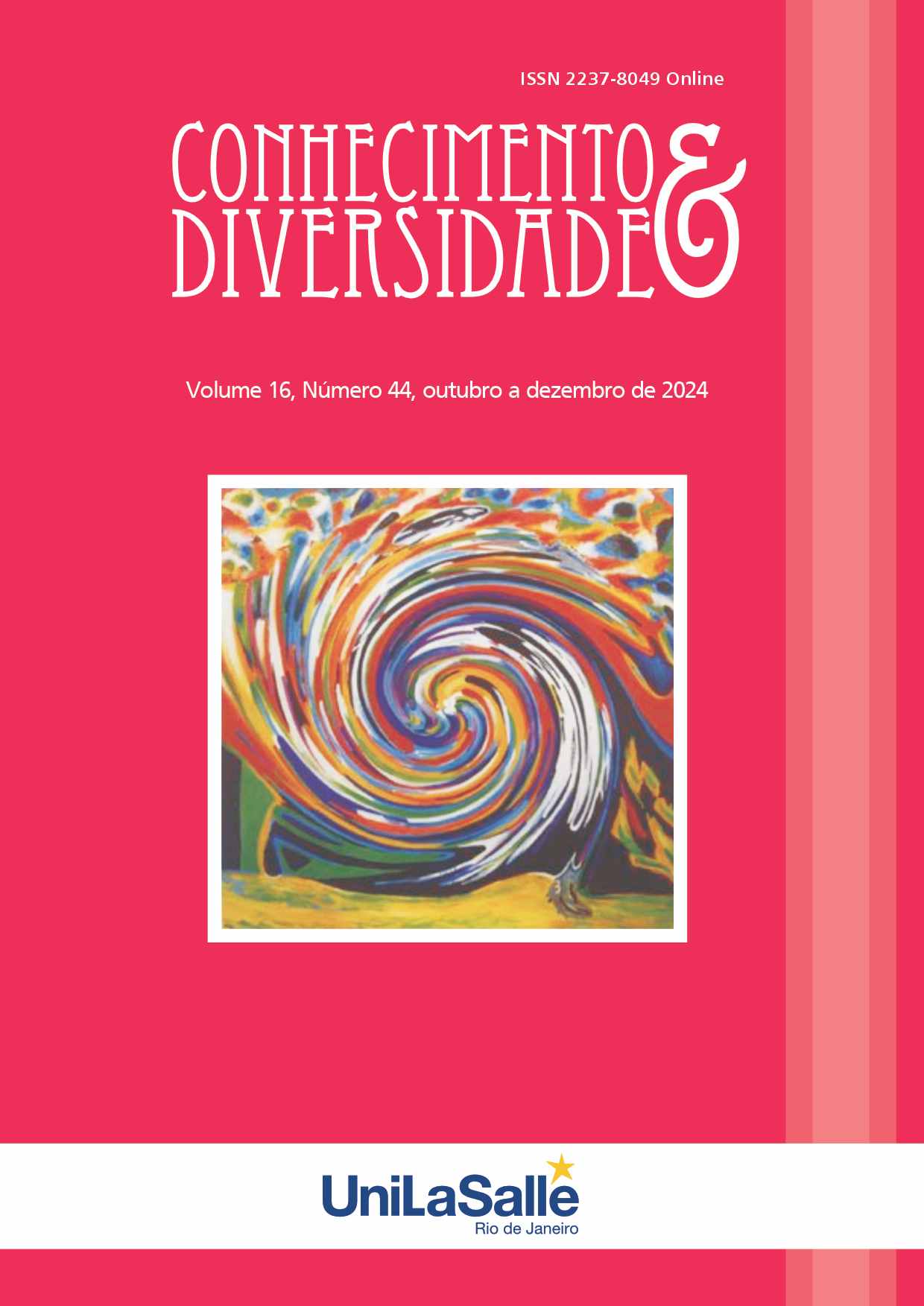INVESTIGATING EFL PRE-SERVICE TEACHERS’ BELIEFS AND COMPETENCE REGARDING PRONUNCIATION TEACHING
DOI:
https://doi.org/10.18316/rcd.v16i44.12083Palabras clave:
Pronunciation, Teachers’ Beliefs, Pre-service, Self-EfficacyResumen
this study attempted to explore senior pre-service english teachers’ beliefs in english pronunciation instruction and their beliefs in their competence regarding english pronunciation instruction. the participants were 17 senior pre-service english teachers studying at a state university. a modified version of the questionnaire that szyszka (2016) developed was used to obtain data. while descriptive statistics were employed to analyze quantitative data, content analysis was used to analyze qualitative data. the findings revealed that most participants had positive attitudes toward pronunciation teaching and perceived themselves as adequate to teach english pronunciation. however, contrary to their beliefs, they claimed they did not have the necessary methodological knowledge to instruct english pronunciation due to their insufficient training.
Citas
Aksakallı, C., & Yağız, O. (2020). The Pre-service EFL teachers’ development of phonological processing and evaluation of their attitudes toward pronunciation. Gist Education and Learning Research Journal, 7–31.https://eric.ed.gov/?id=EJ1262538
Aksakallı, C., & Yağız, O. (2021). A qualitative investigation into EFL pre-service teacher’s attitudes towards English pronunciation and the evaluation of their phonological awareness, problems and difficulties. Bingöl Üniversitesi Sosyal Bilimler Enstitüsü Dergisi, 21, 87–106. https://doi.org/10.29029/busbed.816899
Alcuma, Z. (2021). Investigating EFL Teachers’ beliefs and practices regarding pronunciation teaching: Di̇yarbakir case. (Unpublished Master Thesis). Gaziantep University, Türkiye. https://tez.yok.gov.tr/UlusalTezMerkezi/tezSorguSonucYeni.jsp.
Al-Fakhri, F.Kh.A.K. (2003). The production of the voiced and voiceless dental fricatives /ө/ and/ð/ by Arabic speakers of English from Libyan background: A case study Libyan students in USM. Unpublished Master Thesis. University Science Malaysia
Aslan, S. (2021). A study on EFL teachers’ beliefs and practices regarding Pronunciation teaching at state school in Hatay. (Unpublished Master Thesis). Çağ University, Türkiye.
Bai, B., & Yuan, R. (2018). EFL teachers’ beliefs and practices about pronunciation teaching. ELT Journal, 73(2), 134–143. https://doi.org/doi.org/10.1093/elt/ccy040
Berg, B. L. (2001). Qualitative research methods for the social sciences. Allyn and Bacon.
Bodorik, M. (2017). Teaching English pronunciation by non-native teachers as seen by Slovak teachers. Journal of Language and Cultural Education, 157–174. https://doi.org/10.1515/jolace-2017-0034
Buss, L. (2016). Beliefs and practices of Brazilian EFL teachers regarding pronunciation. Language Teaching Research, 20, 619-637. https://doi.org/10.1177/1362168815574145
Buss, L. (2017). The role of training in shaping pre-service teacher cognition related to L2 pronunciation. Ilha Do Desterro A Journal of English Language Literatures in English and Cultural Studies, 201–226. https://doi.org/10.5007/2175-8026.2017v70n3p201
Chau, T., Huensch, A., Hoang, Y. K., & Chau, H. T. (2022). The effects of L2 pronunciation instruction on EFL learners’ intelligibility and fluency in spontaneous speech. TESL-EJ, 25(4). https://tesl-ej.org/wordpress/issues/volume25/ej100/ej100a7/
Coskun, A. (2011). Future English teachers’ attitudes towards EIL pronunciation. Journal of English as an International Language, 6(2), 46-68.
Couper, G. (2017). Teacher cognition of pronunciation teaching: Teachers' concerns and issues. TESOL Quarterly, 51, 820–843. https://doi.org/10.1002/tesq.354
Creswell, J. W., & Clark, V. L. P. (2007). Designing and conducting mixed methods research. Sage Publications.
Creswell, J. W. (2009). Research design: Qualitative, quantitative, and mixed method approaches (3rd edition). Sage.
Creswell, J. W. (2012). Educational research: Planning, conducting, and evaluating quantitative and qualitative research. 4th Edition. Pearson Education.
Derwing, T. M., & Munro, M. J. (2005). Second language accent and pronunciation teaching: A research-based approach. TESOL Quarterly, 39(1), 379–397.
Gilakjani, A. P., & Sabouri, N. B. (2016). Why is English pronunciation ignored by EFL teachers in their classes? International Journal of English Linguistics, 6, 195-208 https://doi.org/10.5539/ijel.v6n6p195
Gilbert, J. B. (2010). Pronunciation as an orphan: What can be done? TESOL SPLIS, 7(2), 1-5.
Harmer, J. (2007). The practical of English language teaching. 4th Edition. Pearson Longman.
Kuzborska, I. (2011). Links between teachers’ beliefs and practices and research on reading. Reading in a Foreign Language, 23(1), 102-128. https://www.researchgate.net/publication/268435005_Links_between_teachers'_beliefs_and_practices_and_research_on_reading#fullTextFileContent
Lim, S. (2016). Learning to teach intelligible Pronunciation for ASEAN English as a Lingua Franca: A sociocultural investigation of Cambodian pre-service teacher cognition and practice. RELC Journal, 47(3), 313–329. https://doi.org/10.1177/0033688216631176
Murphy, J. M. (1999). Oral communication in TESOL: Integrating speaking, listening, and pronunciation. TESOL QUARTERLY, 25(1), 51-75.
Nguyen, L. T. (2019). Vietnamese EFL learners’ pronunciation needs: A teaching and learning perspective. The TESOLANZ Journal, 27, 16–31. https://www.researchgate.net/publication/352550995_Vietnamese_EFL_learners'_pronunciation_needs_A_teaching_and_learning_perspective#fullTextFileContent
Nguyen, L. T., & Newton, J. (2020). Pronunciation teaching in tertiary EFL classes: Vietnamese teachers’ beliefs and practices. The Electronic Journal for English as a Second Language, 24, 1-20. http://www.tesl-ej.org/wordpress/issues/volume24/ej93/ej93a2/.
Nguyen, L. T., & Newton, J. (2021). Enhancing EFL teachers’ pronunciation pedagogy through professional learning: A Vietnamese case study. RELC Journal, 52(1), 77-93. https://doi.org/10.1177/0033688220952476
Öztürk, G. & Gürbüz, N. (2014). Speaking anxiety among Turkish EFL learners: The case at a state university. Journal of Language and Linguistic Studies, 10(1), 1-17
Sugimoto, J. and Uchida, Y. (2016). A variety of English accents used in teaching materials targeting Japanese learners. ISAPh 2016 International Symposium on Applied Phonetics. https://www.isca-archive.org/isaph_2016/sugimoto16_isaph.html
Szyszka, M. (2016). English pronunciation teaching at different educational levels: Insight into teachers’ perceptions and actions. Research in Language, 2, 165-180 https://doi.org/10.1515/rela-2016-0007
Yağız, O. (2018). EFL language teachers’ cognition and observed classroom practices about l2 pronunciation: The context of Turkey. Novitas-ROYAL (Research on Youth and Language), 187-204. https://novitasroyal.org/download/efl-language-teachers-cognitions-and-observed-classroom-practices-about-l2-pronunciation-the-context-of-turkey/
Yenkimaleki, M., van Heuven, V. J., & Afshar, H. S. (2020). The Efficacy of segmental/suprasegmental vs. holistic pronunciation instruction on the development of listening comprehension skills by EFL learners. The Language Learning Journal, 51(6), 734-748. https://doi.org/10.1080/09571736.2022.2073382
Descargas
Publicado
Número
Sección
Licencia
Derechos de autor 2024 Meral Çapar

Esta obra está bajo una licencia internacional Creative Commons Atribución 4.0.
Tal como recomienda el Public Knowledge Project, RCD adopta para sus artículos una licencia CREATIVE COMMONS: Attribution CC BY 4.0
Esta licencia permite que otros distribuyan, remezclen, adapten y desarrollen su obra, incluso con fines comerciales, siempre que le atribuyan a usted el mérito de la creación original.
Esta es la licencia más adecuada que se ofrece.
Recomendado para la máxima difusión y utilización de los materiales bajo licencia.



